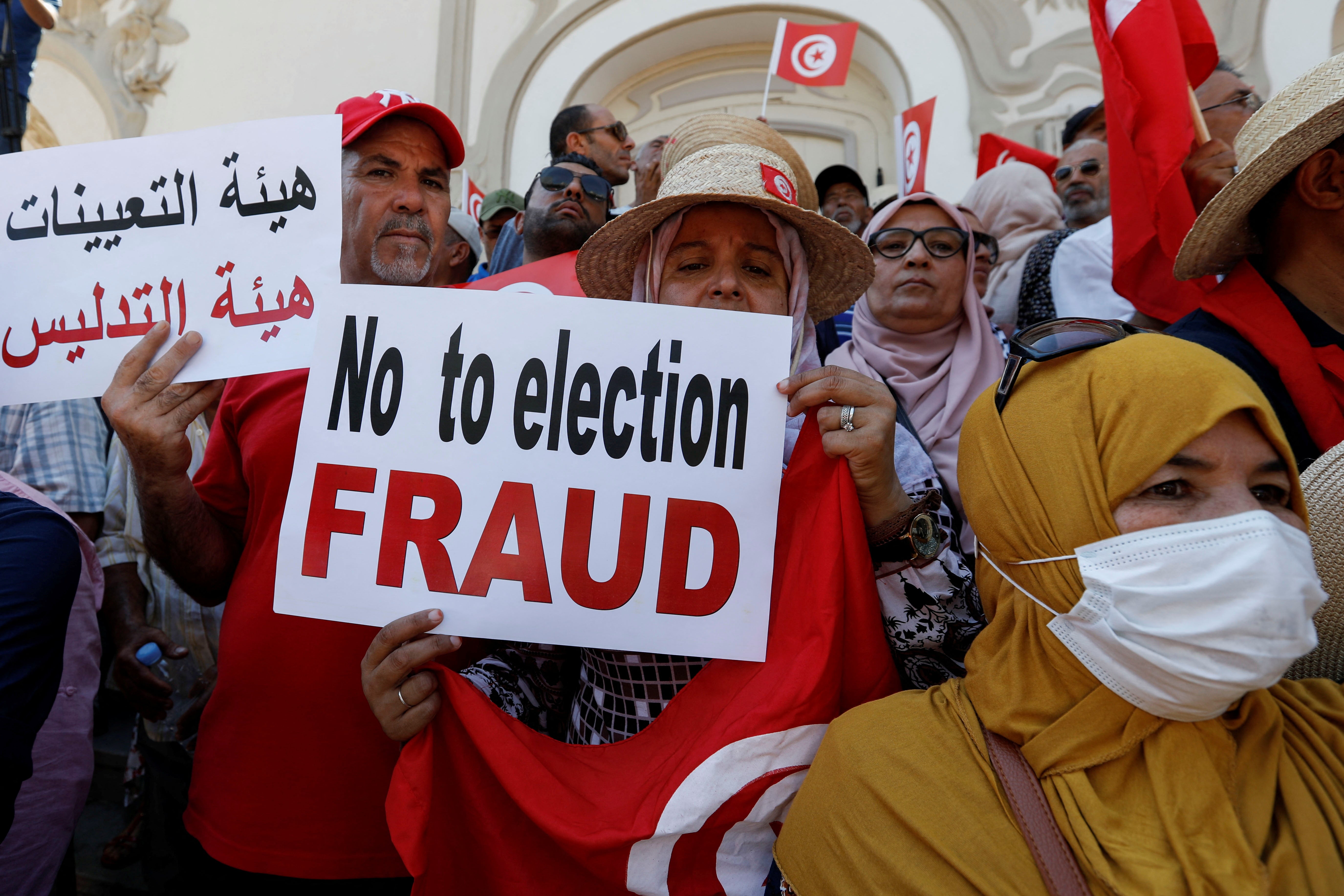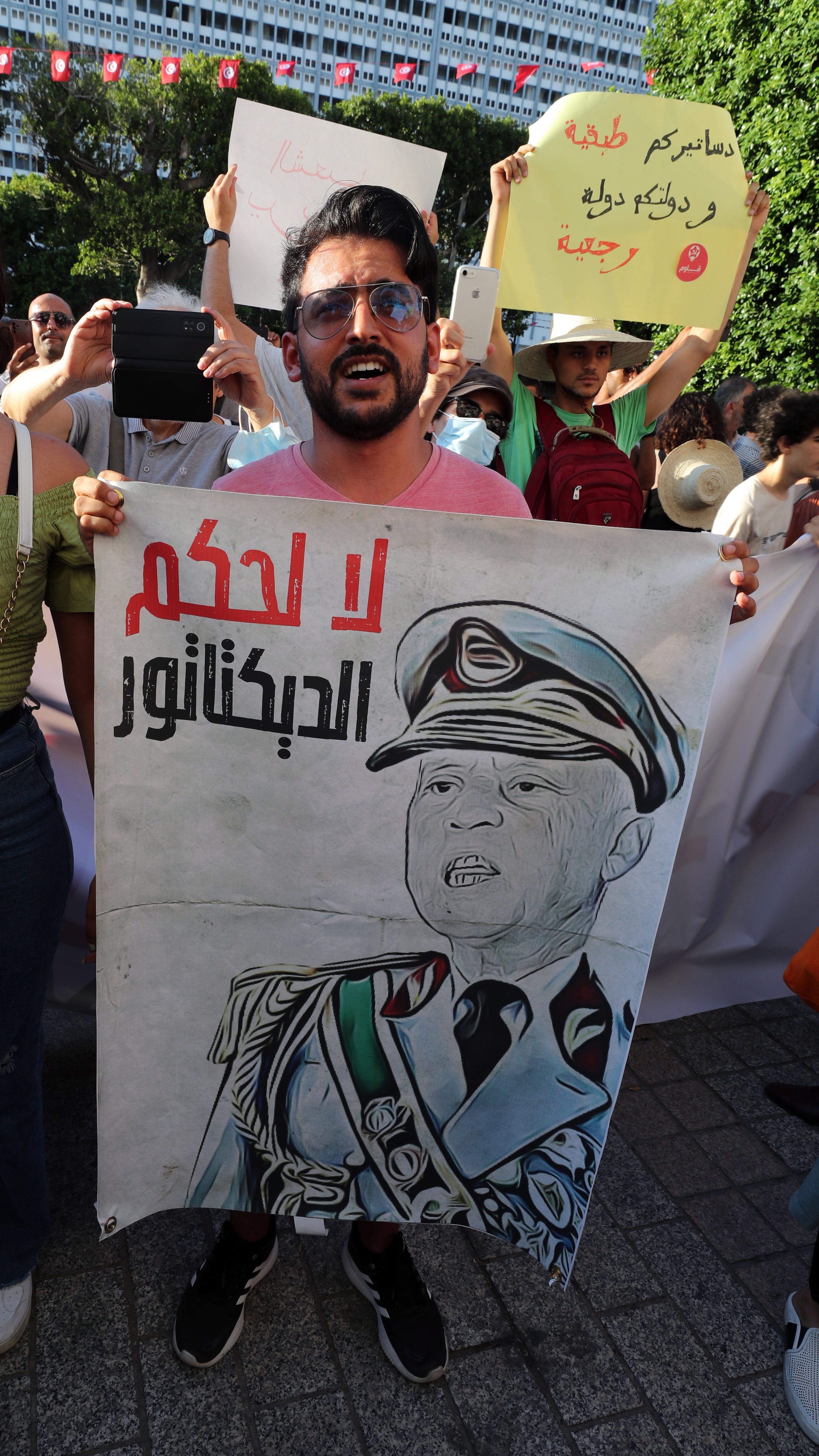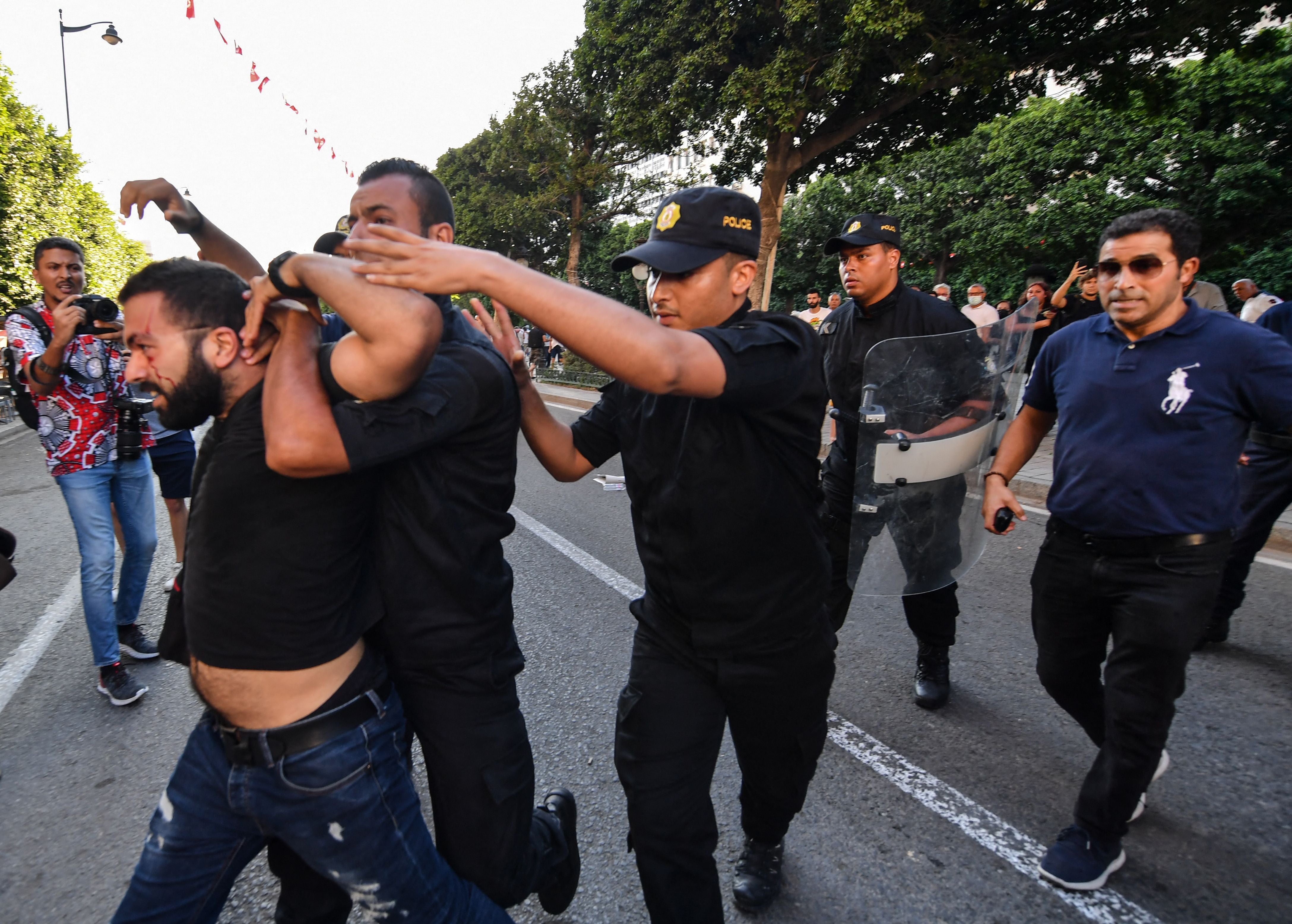Tunisia prepares to vote in referendum seen as a threat to democracy
The country where the Arab Spring started will, on Monday, likely vote to give the president huge powers which many claim threatens the legacy of 2011, reports Simon Speakman Cordall in Tunisia

Tunisians – or at least some of them – will vote in a highly divisive referendum on Monday to determine a new constitution for the country that, for critics, risks an end to its status as the sole success of the 2011 Arab Spring revolutions.
Against a background of spiralling prices, with inflation already squeezing hard-pressed families, Tunisia’s President, Kais Saied, who seized much of the apparatus of power last year, is ploughing ahead with his mission to impose constitutional change, risking division as never before.
Monday’s vote, which comes a year after he sacked the government, could give him unchecked powers. Opponents have called for a boycott, but there seems no doubt that the vote will pass.
For its critics, the vote marks the death knell of the democratic hopes of 2011 and the revolutions that swept the region, only to give way to chaos, carnage and autocracy.
To its supporters, it represents a reimagining of democracy and the streamlining of power outwards from the person of the president.
For its principal author, Kais Saied, the law professor who dramatically redrew the draft submitted to him in June, the referendum represents a step towards a constitutional ideal he has propounded since at least 2011.
The 2014 constitution it replaces came about after years of debate.
Under its terms, the division of power between the president and prime minister, with each previously acting as a check on the other, is gone, removed in favour of a system where all power emanates from the office of the president, who enjoys oversight over both the judiciary and legislature branches of government and, at least for the term of their office, stands beyond official questioning or removal.
The proposals have divided an already fragmented Tunisia.
In the capital and along the coast, many of the beneficiaries of the freedoms the revolution brought now find themselves at odds with a president, who some initially backed, but shows every sign of being determined to rule through autocracy.

Last week, the Nobel prize-winning Tunisian League for Human Rights (the LTDH) added their voices to the chorus of opposition, joining the journalists’ union, the SNJT, Amnesty and Nawaat, the news platform favoured by many in Tunisia’s activist community, as well as many of the country’s former political parties.
However, unity among the opposition remains a significant problem. Few among Tunis’ activist community are prepared to throw their lot in with the mainstream political parties they have spent much of their adult lives opposing. Likewise, even among those parties, division is never far away.
A recent weekend of party political protest in June was split over two days, as neither faction wished to rally alongside the other. Further protests took place on Saturday.
But while many in the capital and along the coast mobilise against the referendum, widely calling for the vote to be boycotted, support in the poorer parts of the interior and the marginalised, overlooked regions remains strong.
There, people who gained little from a revolution carried out over a decade ago and the freedoms it brought prefer to cling to the promises of a man seen as a political outsider, uncorrupted by the grime of politics.
In Sidi Hassine on the outskirts of Tunis, life is getting more expensive as food shortages grow increasingly commonplace. Nevertheless, many here support the president.
“The presidential system is good. I want the parliament abolished,” said 30-year-old tobacco seller Kamal Zaoui.
Further along the street, butcher Naceur Hammami, 64, sat by his makeshift sheep pen.
“We support him. We love him and we want him to succeed. Life will get better here under Saied. He’s better than all the others,” he said.
For many observers, the division is understandable.
“People rejected transactional politics and stopped supporting a democracy that didn’t deliver,” Dr Hamza Meddeb of the Carnegie Middle East Centre tells The Independent, suggesting the incoming system “will be a hyper-presidential one. Strong executive and most probably illiberal”.
He adds: “President Saied will win his referendum and that’s all he really cares about. It doesn’t matter that the turnout, which is unlikely to be high, will delegitimise him. He’ll have his constitution.”
That loss of legitimacy, though, stands to extend beyond Tunisia and into Saied’s relations with the G7, who have previously called for inclusive dialogue on constitutional reform, as well as negotiations with the International Monetary Fund (IMF), whose assistance Saied desperately needs if Tunisia is going to avoid bankruptcy on his watch.
Already supplies of daily household items such as sugar, cooking oil and rice are in short supply, with fuel and utility prices set to rise still further.
Anger about that may be justified but grievance, Meddeb says, is an unsure foundation on which to build any political project. “People are angry,” he said.
However, less than 12 months into his period of unchallenged rule, the direction of much of that fury remains historical, Meddeb claims.

“They’re angry at the parliament, the politicians within it and all the old elites. They want to see the whole thing torn down, along with the corruption that flourished within it.”
Should negotiations with the IMF continue, the first reforms to Tunisia’s ailing economy can be expected over the summer, ahead of any autumn payment.
Among those are likely to be sweeping changes to the country’s network of State Operated Enterprises, but also reforms of the country’s subsidy system, a network of state payments that, for those in Sidi Hassine and across the country, is coming under increasing pressure as prices rise and incomes stagnate.
By then there will be no ambiguity as to where power resides. By then power will be vested firmly in one man and one office. In Sidi Hassine, they won’t have far to look.
Join our commenting forum
Join thought-provoking conversations, follow other Independent readers and see their replies
Comments
Bookmark popover
Removed from bookmarks